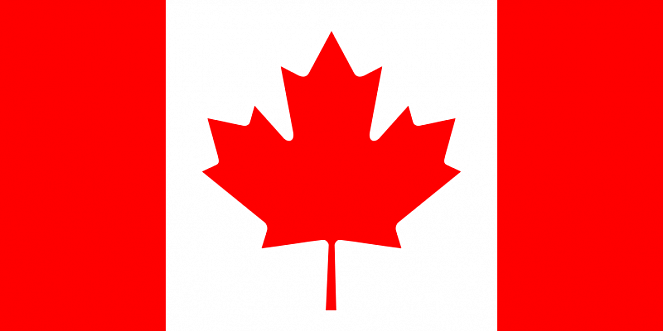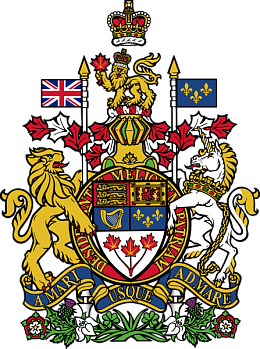 Canada
Canada
TRANSCRIPT OF RUSSIAN DEPUTY MINISTER OF FOREIGN AFFAIRS GEORGY MAMEDOV REMARKS TO RUSSIAN MEDIA FOLLOWING TALKS WITH US UNDER SECRETARY OF STATE JOHN BOLTON, MOSCOW, OCTOBER 21, 2002
My consultations with US Under Secretary of State John Bolton have concluded. Today it was a very packed day. Also on a visit to Moscow is Mr. James Wright, Deputy Minister of Foreign Affairs and the Canadian Prime Minister's Special Representative. You know that Canada currently holds the Presidency in the G8. Therefore the Canadians on behalf of the G8 held consultations with us on Global Partnership issues. The Global Partnership Against the Spread of Weapons and Materials of Mass Destruction program was approved at the G8 Summit in Kananaskis. It provides for allocation of about 20 billion US dollars (and about 15 billion US dollars has already been allocated) for the destruction of weapons of mass destruction and the materials which are used for their production. First of all this concerns projects in Russia. Today a large part of our consultations with Mr. Wright and Mr. Bolton was dedicated to this theme. You know that the priorities of our efforts are, first, the destruction of chemical weapons and, second, the disposition of decommissioned nuclear submarines. I must say that the talks passed very constructively. In the next few months we hope to sign concrete agreements with different G8 countries, including Canada and the US, for the implementation of these plans.
Also in the course of the talks with Mr. Bolton we touched upon a whole variety of other issues, including those raised within the framework of the meeting of the Group for Strategic Security held this September in Washington, in which the Foreign Ministers and Defense Ministers of our countries participated. In particular, the prospects for ratification of the Strategic Offensive Reductions Treaty were discussed today. We told Mr. Bolton about the latest contacts and preliminary hearings held on the subject in the State Duma and the Federation Council of the Russian Federal Assembly. In our opinion, unless significant changes occur in the international situation, the Houses must listen to the arguments of the Ministry of Foreign Affairs, the Ministry of Defense and other agencies and support the ratification of this Treaty, which we think meets the security interests of Russia. Mr. Bolton said that, in the view of the US administration, the Senate is likewise bound by an overwhelming majority of votes to support the ratification of the Treaty. Moreover, the US Under Secretary of State considers it possible that until the November elections to Congress the ratification may not occur. In this connection I think that during the subsequent contacts, now to take place in Mexico at the APEC summit, we will return to this question. There will also be meetings between Vladimir Putin and George W. Bush and between Igor Ivanov and Colin Powell, in the course of which these questions will be discussed.
The problems of nonproliferation of nuclear weapons also were examined. Mr. Bolton shared with us some confidential information, which I am not going to disclose here, about the situation with nonproliferation on the Korean Peninsula. Our position is well known, it has already been stated by Minister of Foreign Affairs Igor Ivanov. We advocate the strict observance by all countries, including the states of the Korean Peninsula, of the Treaty on the Nonproliferation of Nuclear Weapons. Any problems might lead to undermining the Treaty itself. Of course, we are in no hurry with conclusions and are in contact both with the US and with the DPRK, ROK, Japan - that is, with all the countries which can provide us with information. As soon as we are in possession of that information and arrive at a conclusion, we as a state party to the Treaty on the Nonproliferation of Nuclear Weapons will announce our position, and it will become known publicly. But this is not a simple question because the situation in the world is tense. I bluntly told Mr. Bolton that not least this is due to the tension in certain regions, in particular, in the Persian Gulf area, as well as to the statements of the American side, for example, about an "axis of evil," and to its published new military doctrine of "preventive strikes." We believe that such statements might exacerbate the situation and are not conducive to a constructive solution of nonproliferation issues. On the whole the conversation was, as always, substantive and meaningful. Tomorrow Mr. Bolton will be received by Minister of Foreign Affairs Igor Ivanov. Today he had a conversation with the Security Council Secretary, Vladimir Rushailo, and meetings in our other ministries and departments. I think that the Russian and US Presidents will devote a considerable part of their meeting in Los Cabos to the issues of strategic security and nonproliferation.
Question: Mr. Bolton spoke of the DPRK in an accusatory tone?
Georgy Mamedov: Mr. Bolton repeated what had been officially declared by the US State Department and spokesmen for the US Administration. You're reading the press and watching television. That was done exactly in an accusatory tone. We do not want to act either in the role of Defense Counsel or in the role of Prosecutor or the Judges. We want to sort things out, what real information exists and what may have been misunderstood. Only after that will we be able to declare our position. Mr. Bolton did provide us with some information. We will make an effort to check it. We have good relations with both Pyongyang and Seoul, relations which have been developing of late. We cannot rely upon reports from one source only.
Question: Will the Russian side be conducting a constructive dialogue with Pyongyang?
Georgy Mamedov: I once again reiterated the position of the Russian side. We believe that security issues can be solved only by way of a political dialogue and the strict observance of international commitments. Power politics and threats can't solve the problem, they can only make it worse. Therefore we are for a constructive dialogue, which we are continually holding with the DPRK.
Question: In what format will contacts proceed with the North Koreans after their acknowledgement about their ongoing nuclear program?
Georgy Mamedov: In the first place, we must establish whether there was the acknowledgement. So far this information has come in from one source only. This is an unusual practice: they wait two weeks after the confidential contacts ended and then all of a sudden they drop that information bombshell. Therefore, as soon as this information became known, we inquired of all the parties, not just of the DPRK. There exist other parties which are also interested in these problems and have their own sources of information. In particular, the statements by representatives of the US side make references to Pakistan. Therefore we must use all the possibilities for gathering objective information. We expect that our North Korean partners too will state their position officially. They apparently need some time for that.
Question: Were Iraq problems discussed in the course of the consultations?
Georgy Mamedov: They were not the chief subject of the consultations, which, for the most part, were dedicated to the issues of nonproliferation and disarmament. They constituted background. We noted that the fanning of tensions around Iraq, the constant talk and speculation that a military strike may be delivered do not make for the establishment of a constructive atmosphere in the world for the solution of issues, including that of military security. A whole array of states assert that in the conditions of such pressure, and not only against Iraq, it is difficult to constructively solve the questions of nonproliferation by political means. This calls into question the value of international treaties. We believe that this is a dangerous tendency. You know the stand of Russia. We are confident that that has to be dealt with using international instruments exactly, multilateral approaches and that's why we are so persistently working in the UN and its Security Council on a political solution to the Iraq problem. But today specifically this topic was not discussed. I think that tomorrow you will have more exhaustive information when Mr. Hans Blix is received by the Minister of Foreign Affairs of Russia.
Question: Usually Mr. Bolton raises the subject of our cooperation with Iran. Was it discussed this time?
Georgy Mamedov: Today he didn't raise it. He was absorbed in the subject of North Korea.
Question: What are possible US moves with regard to the DPRK? Did Mr. Bolton speak about that?
Georgy Mamedov: I am confident that our American partners understand how dangerous is the creation of a crisis in the already complicated region. We have advocated and will continue to advocate continuing the dialogue among all the concerned parties. In this regard, we noted what the ROK leadership said in favor of continuing the dialogue between the two Koreas. We expect that the American side too will continue the dialogue, although very harsh statements are being made in Washington. So that I can't say I guarantee the continuation of that dialogue and I hope that we won't see force-based methods. In this situation no one can afford to go for it.
Question: Before meeting with you Mr. Bolton had tied up the striving of the US administration to solve the North Korea issue by peaceful means, but with the help of "political pressure." Did he concretize that in any way?
Georgy Mamedov: No, he didn't. He simply cited on a confidential basis some data which the US has in possession. I repeat we will check those data. We are for a dialogue. We are against any intimidation or pressure; this never leads to anything good. All the more so on the Korean Peninsula, where there have already been enough conflicts and clashes.



